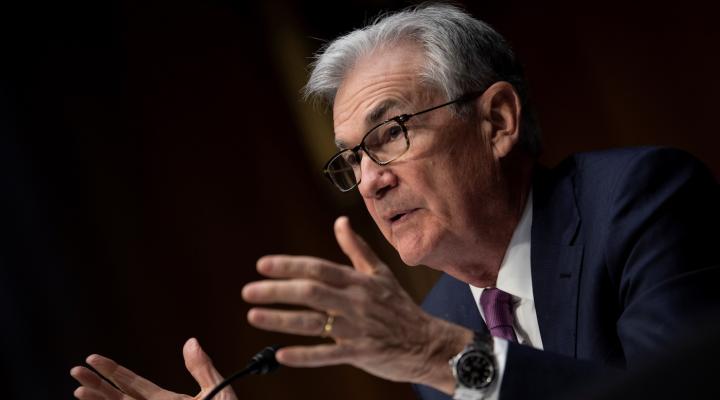Fed Chair Powell's Words Today Matter More Than His Actions

Fed Chair Jay Powell faces an unenviable task today: After its scheduled two-day meeting, the Federal Open Market Committee (FOMC), the group at the central bank that sets interest rates and other monetary policy, will release a statement outlining any changes. Following that release, Powell will give a press conference to elaborate on and explain the committee’s decisions. The problems for Powell are twofold. First, deciding what policy changes to make is a challenge in current conditions, and a mistake could be disastrous. Secondly, he will try to make what is really a fundamental shift in economic and monetary conditions with possibly profound consequences sound as innocuous as possible.
Changing policy is such a difficult thing to do right now mainly because it has stayed constant for so long. Apart from a well-intentioned but short-lived period of "normalization" under Janet Yellen, the Fed’s monetary policy has been "easy," meaning low interest rates and support for liquidity in the market, ever since the response to the credit crisis and resulting recession began in the fall of 2008. That is thirteen and a half years during which banks and financial institutions have become used to short-term interest rates near zero and to the Fed buying assets with newly created money, essentially handing them billions of dollars of cash to invest every month.
Good luck changing that overnight without causing a major disruption.
That would be impossible, of course, so Jay Powell’s approach has been to make sure that the changes aren’t perceived to have happened overnight. He and other committee members have been talking about the changes that are expected to be enacted today for months, or one could even say for years. The effect of all the talk has been to allow the market to get used to the idea. You could say that actions rather than words would have been preferable given where we are at now, but that is easy with 20/20 hindsight. Powell, like his predecessor Yellen, tries not to shock the market, and signals intentions whenever possible for as long as possible.
That is why a major reaction to a quarter point increase in interest rates this afternoon is off the cards. That lack of a reaction, however, is about the preparation, and will tell us nothing about the possible consequences of embarking on policy tightening right now. The war in Ukraine and the lingering effects of Covid are impacting the economy and, while one swallow doth not a summer make, this morning’s retail sales and other data suggest that inflation may be the best cure for inflation, meaning that consumer activity is rising slower as a result of higher prices, as you would expect, which will reduce the demand-pull effect and should ease inflationary pressure. Maybe Powell was right and inflation will prove to be transitory after all, if "transitory" meant a period of two years or so...
I am sure the Fed committee is acutely aware of those risks, which is why what they say and how they say it become more important than what they do. Powell is tasked with making a major policy shift that could be coming at the wrong time sound routine and the right thing to do. That isn’t easy, but he has trained the market to pay more heed to what he says than to what he does, which is why it's important today to listen to what he has to say.
The views and opinions expressed herein are the views and opinions of the author and do not necessarily reflect those of Nasdaq, Inc.
